This is Part II of the story of Representative Town Meeting in Brattleboro. You can read Part I: Origins and Adoption here.
Meet Edgar Lawton
Representative Town Meeting passed, but not everyone approved of the outcome. One of its critics was Edgar Lawton.
Although we don’t hear much about Edgar Lawton today, his name is ever-present in the minutes and agendas of Selectboard and Town Meeting reports throughout the 1950s and 1960s.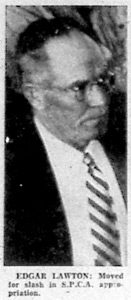
Edgar Lawton lived on Oak Street (and later, Western Ave) and had property in West Brattleboro. Those who knew him said he was a long-time resident, likable, but with an opinion on most town matters.
“Mr. Edgar Lawton was in,” Selectboard minutes would state frequently, followed by the issue at hand. Here are few of the many things he brought to the attention of the board:
- a plan to combine the school and recreation facilities
- a discussion of matters with listers
- a petition for a public hearing on taxes
- a petition to discuss appraisal problems
- a request to eliminate of two 1 year terms of Selectmen
- a discussion of dump problems
- a statement that he would not make his land off Meadowbrook into a dump due to neighborhood feelings
- a request for changes in zoning
- a discussion of traffic flow problems
- a complaint about handling of a fire on his Sunset Lake property
- a license to operate the West Brattleboro Race Track for stock cars
- a request (denied) for permission to launch fireworks at jalopy races at the race track
and more.
Prior to the adoption of Representative Town Meeting in Brattleboro, Lawton appeared focused on other issues and not town governance. When George Mason first mentioned the state’s Enabling Act during the March, 1959 open Town Meeting, Lawton spoke to another matter entirely – in favor of having a restroom near Harmony lot. (A motion was made that the Selectmen appoint a committee to “make an investigation of the restroom matter.”)
The first mention of Lawton discussing the representative form of town meeting appears in the September 1959 Selectboard minutes, but there is no record of what he said to the board.
In fact, we don’t hear much from him until after Representative Town Meeting was adopted. However, once that decision was made, Lawton became a key player in trying to reverse the decision.
Abolishing Representative Town Meeting, Round One, No Way Out, 1962
In February of 1962, the Selectboard accepted a petition from Edgar Lawton asking that the town abolish the representative form of government and restore the right to vote on all local issues to all individuals. They agreed to put it on the meeting warning.
At the March 1962 Representative Town Meeting, Lawton asked for a roll call of members with terms expiring in 1963 and 1964, and asked that they state whether they had attended meetings on school budgets. He was the first “non-representative” to be ruled out of order and his requests were denied.
The representatives did take up his petition to abolish under Article 20, however, and the legality of such a move was debated. The minutes don’t go into much detail, but Lawton had revealed what could be seen as a rather major flaw in the state’s enabling act. Indeed, while the town could adopt Representative Town Meeting, there was no clear mechanism for getting out of it. This omission took years to resolve.
A. Hadley Shumway made an opposite motion “that the town vote NOT to abolish and not to return to traditional Town Meeting.” That motion carried.
Three days after the town meeting, Lawton and others were before the Selectboard “to inquire about certain petitions with abolishing the Representative Town Meeting form of government.” The matter was referred to the Town attorney, John Burgess.
Burgess attended the following week’s meeting. His opinion was that everything done by the Selectmen was proper, “though he did admit that the language of the statute was not clear in all regards.” The board decided, “after much discussion,” to investigate whether voters could weigh in by Australian ballot at the 1963 meeting.
Abolishing Representative Town Meeting, Round Two, Ask The Legislature, 1963
A Special Town Meeting was called in mid-February of 1963 to deal with both Lawton’s petition from the year before, and the enabling act confusion.
Article 4 was for Lawton, “to see if the Town will vote to instruct the Selectmen to insert Article 20 of the 1962 warrant in the Town Meeting warning so voters at large can exercise their legal right to vote as allowed by statute.”
Emma P. Bailey made a motion to amend it “To see if the Town will vote to abolish the Representative Town Meeting form of Town Meeting and return to the traditional Town Meeting,” which caused the Moderator to question the legality of her amendment. Moderator F. Elliot Barber suggested that legislative level action would be required before voters could act on the motion.
Attorney Chapman, Attorney Gannett, and Town Agent Burgess spoke to the matter, and the Moderator called for a vote on Bailey’s motion to amend.
Chapman quickly made a motion that the Moderator was out of order for putting the motion to the meeting, and said it should not be put to a vote. Chapman’s motion carried.
Representative Town Meeting members then moved on to Article 5, and left the original motion uncompleted.
Under Article 5 Gannett made a motion to correct the enabling act error, “ That the Vermont General Assembly be requested to amend No. 302 of the Acts of 1959 to include a provision that the question of revocation of such form of government, once adopted, be voted upon by ballot by the legally qualified voters of town.” It carried.
Gannett’s intention was for any repeal to be handle by ballot of all voters at a general town meeting, and not at Representative Town Meeting.
Lawton and others kept up pressure on the Selectboard to call special meetings to abolish Representative Town Meeting, and to pay attention to the amendment in the Vermont Legislature. Town Manager Elwell told him in mid-May that when it passed, people could do a petition and it would come up in the March 1964 meeting warnings.
Abolishing Representative Town Meeting, Round Three, Unsuccessful Attempt, 1964
Lawton was reassured at the January 9, 1964 Selectboard meeting that Gannett would see that an article was inserted in the warning asking for a referendum on the Representative Town Meeting form of government.
On March 3, 1964, nearly four years after first adopting Representative Town Meeting, voters were allowed to weigh in once again, by ballot at a general town meeting. Following Gannett’s suggestion, the entire town voted by ballot on the question “Shall the Town of Brattleboro retain the representative form of Town Meeting?” 1380 said yes and 859 said no.
Weeks later at the Representative Town Meeting, the minutes report that “Mr. Edgar Lawton, not a representative, spoke on legality of handling a petition which he had presented last year on the question of retaining the representative form of town government, and asked why it had not been acted upon. Mr. Robert Gannett answered that it had been declared out of order by the Moderator.”
According to the minutes, however, this was incorrect. The moderator had been ruled out of order for asking for a vote on an amendment, and the original motion had been ignored.
Mid 1960s – Quorum Trouble
At the March 1965 Representative Town Meeting, Edwin Milkey made a motion that representatives that are also ex officio members of the Representative Town Meeting resign to free up seats for others interested in being representatives. It was discussed but not adopted, though quite a few resignations were accepted in the following weeks. One funny one came from Robert Gibson, who offered to resign to “avoid issues of duality,” and then signed his name twice.
Brattleboro, which was used to having special town meetings more often than we do now, continued to have quite a few throughout the year. The difference was that a handful of resident representatives were making make big decisions on sewers, community development, and low rent housing needs.
In January 1966, 87 people voted for a plan to spend $1.4 million on new sewer work along Putney Road and a sewage treatment plant. The same issue came up at another special meeting in September of that year, where 65 people voted in favor of what had become a $1.8 million plan.
More than once, town meeting representatives failed to reach a quorum for the special meetings and had to wait before taking up the business on the agenda.
Voters Repeal Representative Town Meeting, 1968
The Selectboard warned the 1968 general and representative town meetings in February, as was the rule.
On the ballot for March 5, 1968, Brattleboro voters were again asked “Shall the town of Brattleboro retain the representative form of town meeting?” It wasn’t taken very seriously, and the Reformer mocked Lawton and his friends in an editorial the day before the vote.
“Now, about this ‘conspiracy’ which causes great concern for Edgar and his friend, we haven’t been to any of the meetings of the ‘Inner Circle’ lately and we are not up on just what skullduggery the conspirators are up to these days,” said the editors. “It is difficult for us to believe, as Edgar’s friend implies, that Somebody, somewhere, snaps his fingers and these Town Meeting Representatives, rugged individualists that they are, simply fall into line. Sort of insulting even to suggest they might.”
In an extremely close and surprising vote, however, voters repealed Representative Town Meeting. The town clerk recorded that 768 were in favor of keeping it and 775 voted against.
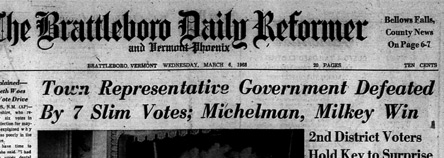
The Reformer expressed shock with a headline “Seven Votes Changed Form of Governing,” and pointed to District 2 as the deciding factor. The paper complained that only 1,543 voters had gone to the polls, and expressed immediate concern that the next meeting would see a few hundred voters crammed into Community Hall facing very complex budgets and issues.
The next day the Reformer followed up with an editorial that said a mere 22% of eligible voters made “drastic” changes to town governing. Again pointing to District 2 as providing the margin of victory, the editors lamented the loss of district polling locations and the return to a single polling place.
Admitting that RTM had weaknesses “not the least of which was insufficient district meetings so that the representatives could know what the voters in their district wanted” the editors said they hated to see it go. They called the vote an “unfortunate day in Brattleboro’s history.”
Let’s Recount That Vote
Within days, Byron E. Warren, the Chair of the Selectboard, had approached the Board of Civil Authority with a request for a recount “due to the small difference in the vote on the question… and because of numerous inquiries by interested citizens.”
To show that he was sincere, and not just trying to get the vote to go the other way, he added “This action is being taken for the sole purpose of being absolutely sure that the tabulation as presently indicated is a correct one.”
Edgar Lawton told the Reformer that he hoped the recount would result in a tie. “People need to be livened up,” he said. “Public apathy is terrible. If we had another election, with only this question of the ballot, a clear answer would be given by the voters.
The Town Agent, John Burgess told the paper that a special election could be held for a second vote on the question before the end of the year. His opinion was that “…selectmen may under a 1959 enabling act call for another vote on the form of government at any annual or special meeting.”
The recount began March 11 at 7:30 pm, and ended with more surprising results that “confirmed previous results and added four votes to the margin defeating representative town government.”
The recount now showed 766 in favor of keeping it and 777 against.
The Reformer reported “The rejection of representative town government, generally considered an unforeseen turn of events by town officials, will return the town to the open meeting form of government on January 1, 1969, unless a special election vote is held and reverse last week’s decision.”
On March 13, Lawton and George Cassavant attend the Selectboard meeting with a new petition “to see if the town will vote to seek an enabling act so that the issue will have to be balloted on every year at annual town meeting as is liquor.” The board tables it for consideration by the Town Agent.
On March 16, the town went ahead with the warned Representative Town Meeting as scheduled. The Reformer called attendees “a flock of more than 100 lame duck town meeting representatives…” and had a photo with a caption asking if this could be a picture of the last representative town meeting in Brattleboro.
Let’s Rescind The Vote – Representative Town Meeting Restored
In early April a special town meeting was scheduled for April 15th to vote on rescinding the recent decision by voters.
Lawton wrote a letter to the editor on April 8 outlining some of his objections to Representative Town Meeting. “Who was responsible for this undemocratic situation and who is now trying to cash in on it?” he wrote. “Lawyers, lawyers who have tried all kinds of tricks such as the false promise that at any time we were dissatisfied we could vote it out only to find when that time came that they had not provided any way it could be done. Can we again be fooled by promises of improvements if re-elected? We don’t need any hierarchy in our town government. We have more than enough in our church government.”
The Reformer editorialized on April 12th that RTM should be kept because Brattleboro has voting districts set up, and that it would be less confusing to voters, giving each section of town a set number of representatives rather than having them come from just one side of town. “Let’s Keep the Snug Fit” was the title.
April 15th was the date of the new vote. “Will the legal voters rescind the action taken March 5, 1968 under Article 2 rejecting the representative form of town meeting?“ was the big question, but there were also a couple of budget issues to resolve.
When the new ballots were counted, the totals had shifted and 954 voters opted to rescind the earlier decision. 701 wanted it to stand. Representative Town Meeting had been restored to Brattleboro.
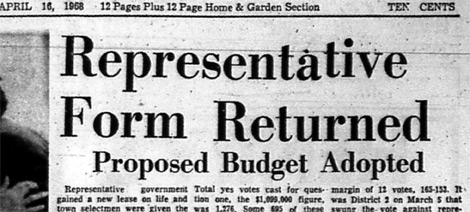
The Reformer praised the 23.5% of voters who voted, and District 2 for changing their collective mind. They praised District 2’s “dramatic reversal,” adding “They voted to return to representative government by a margin of 12 votes.”
On April 23, 1969, Edgar Lawton brought a petition for a recount to the Selectboard. It was a budget related matter.
Postscript
So, why does Brattleboro have Representative Town Meeting? The short answer seems to be that the town was struggling with growth, looking for a change, and a capable person with useful experience elsewhere was able to usher in a new approach. Once the new, representative form of government was approved, supporters withstood and outmaneuvered any opposition.
Expectations and hopes that other towns in Vermont would follow in our path haven’t materialized in 50+ years, and Brattleboro continues to have the representative form of town government in 2014. Many here take it for granted.
Certain questions naturally arise:
– Does the representative form of town government work, and is it the best we can do? How well are voters and representatives living up to the original intent? Can it be improved?
– Should we return to open town meeting? Would legal voters be as well informed on issues as representatives are supposed to be? Could the budget or other complex issues be handled by Australian ballot?
– Should we become a city? Would we benefit from a mayoral system?
– Are there other options to explore? How about a commission, council-manager, or regional system?
– Should we keep the representative form of town government? Should the issue be placed on the ballot for a vote?
About the Story
My research for this story included reading books of Town Meeting minutes, Selectboard minutes, and Board of Civil Authority records, as well as newspaper articles on microfilm, from about 1951 to 1968. I also looked at articles and photos on file at the historical society, and collected the recollections and thoughts of town employees and a few who lived through the period. This material was assembled into a timeline which was then used to guide the writing.
Others can and should expand on this, I’d suggest looking at similar records from before 1951 and after mid-1968. Try to find out more about the ”minor” players. Find a copy of the report that Gannett and the committee wrote for the Selectboard and legislature. Try to determine if town governing improved in the years following the adoption of this form of governing.
As such, I consider this work comprehensive but not complete. I’m happy to make corrections and additions. I’m certain others can offer up additional perspectives, too, and hope that memories might be triggered by providing as much of the official record as I have done here.
You might also enjoy this graph of the results of the annual questions about beer, wine, and spirits. The question of whether Brattleboro should serve and sell liquor was asked each year of the voters. Being the one standard set of questions asked each year, it serves as a rough yardstick to voter turnout throughout the mid 1950’s and 60’s.
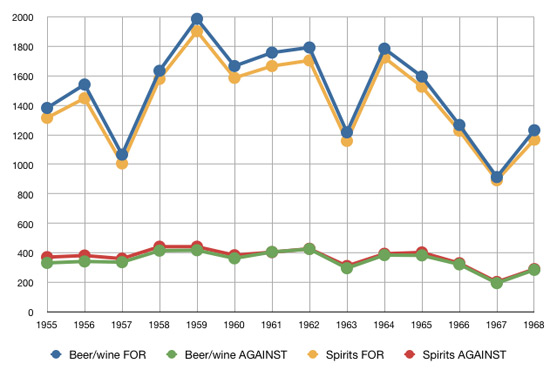
Much thanks to Annette Cappy and the Town Clerk’s office, the Brattleboro Historical Society and their new History Center, and Jeanne Walsh at Brooks Memorial Library. Additional thanks to Russell Janis, Daniel Fyffe, John Carnahan, Town Attorney Robert Fisher, Tim O’Connor, and Chuck Cummings.

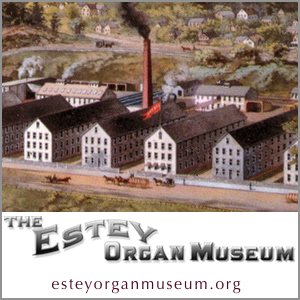

Well Done
Mr Grotke, thank you for a splendid two-part adventure into the facts, and occasionally opinion, of how we got here.
As a former Manhattanite who went experienced the transformation of the City’s system of government after the SCOTUS (correctly) ruled in 1989 that it violated the “one man, one vote” principle, the Charter underwent a transformation that will always serve as a historical milestone in the City’s history.
I continue to struggle with the history of Brattleboro’s Charter–especially the more recent changes, and particularly the acceptance that a new elected Selectboard member is merely an observer at the Town Hall meeting later that month. If you could provide a panoramic view of the history of the Charter as you did for this topic, I would greatly appreciate it, even if I have to wait a year or three.
Again, splendid work.
Thanks!
Glad someone liked it! It took a while to gather everything – many times I thought I found an answer but I’d end up with another question.
The current Charter started with RTM – if you read it (on the town website) you’ll see it allows for RTM and then describes how things work under the RTM system. It talks about who does what, what’s needed to amend it, and so on. It’s very much a document describing how to operate under RTM.
A number of the Charter revision folks are very much around and able to discuss what they did with the recent revisions. One of the more notable changes was that a petition signed by 5% of the voters brought to the Selectboard must be put on the warning (it’s no longer a suggested option.)
I’d guess that the old, pre-RTM charter is available somewhere, and probably describes running the town with an open town meeting system. If we ever repealed RTM again, we’d likely create a new one to describe how we decided to operate.
That's a Charter revision I can be happy about
I never understood why the Selectboard could interfere with a petition, and am glad to know (here for the first time ever) that they can’t anymore.
The Daims petition to grant amnesty to Bush & Cheney (essentially an extension of his successful petition to put an unenforceable warrant for their arrest on the books back in March 2008) was stopped by the Selectboard–one had the audacity to invoke the phrase “ballot pollution”–by a 4 to 1 vote, and while the wording was an affront to decent American English, I was appalled by the decision. I for one am glad to see that can’t happen again.
Which brings me to one of the big questions that I hope to raise in the next fortnight–why was it 5% then, and then during your transcript the Town Attorney Fisher corrects himself and talks about 10% in ten days, a ridiculously high bar that is unmatched in any democracy I’ve encountered by experience or news article.
Changing the subject somewhat, the issue of whether Brattleboro should be considered a Town or City is finally hooked to some real numbers. The federal census gives the current population as 12040; beginning with 1970 census, this number has never hit a low of 11000 or high of 13000.
If the line was drawn at 12000 in the 1950s or early 1960s, when the Republic had less than half its current census population, while the population of Windham County has increased substantially over the past five decades, and with it some weight on Brattleboro’s infrastructure, Brattleboro should be a Town as it is currently constructed for the very-long-term unless some dramatic turn of geo-demography occurs.
That's a charter amendment I can be happy about
Mr. Mills.
Unfortunately the jury is still out on the question of interfering with petitions. In that first case you mentioned selectwoman Martha O’Connor also called on the board to be “gatekeepers of public sentiment”. Many people don’t think it’s appropriate to address national or global issues through town government, and they censor such efforts when they can. After the second such violation Vermont Superior Court ruled that the selectboard had illegally blocked the EMDOVY resolution from the ballot. (see Chris’s article https://www.ibrattleboro.com/article.php/20100913161837675). This ruling was incorporated into the town charter, and now the selectboard cannot interfere in this way. However, in 2011 town government reacted to the people telling them what to do via the courts, petitions and the PAYT referendum, and they attempted to restrict the referendum power and succeeded in restricting the people’s right to petition for official votes and to draft laws. Petitions are basicly subject to censorship except for one day per year. The violations of free speech that were informal powers of the selectboard are now effective legal powers of the RTM. Brattleboro Common Sense has placed new charter amendments on the ballot to restore your rights and improve voter participation.
Excellent work, Chris
That was an extremely well written and informative piece of historical writing.
Thanks for being so thorough in your research.
Excellent and thorough work , Chris
That was excellent work.